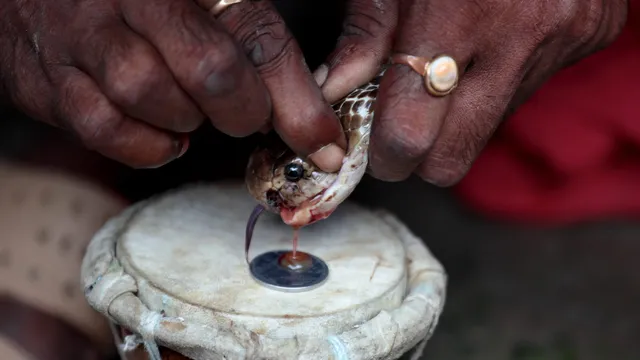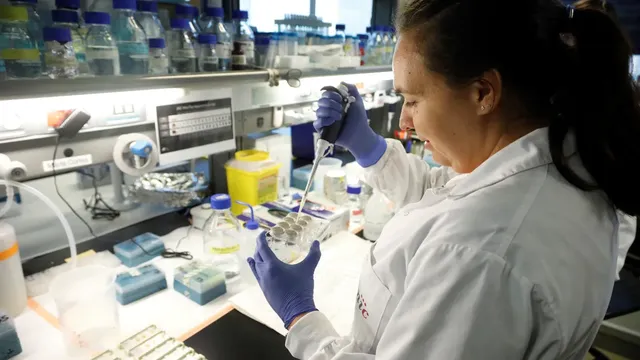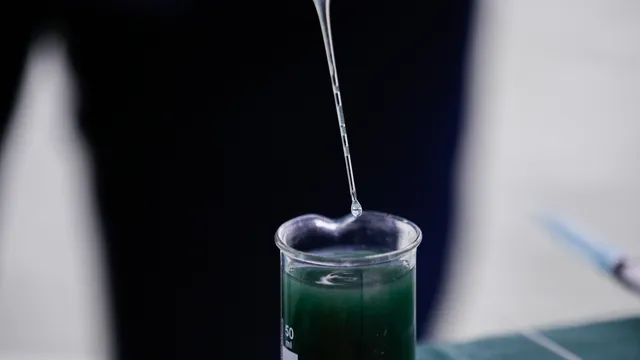Scientists claim that the blood of an American man who deliberately injected himself with snake venom for almost two decades has led to the creation of an "unparalleled" antidote, the BBC reports.
The antibodies found in Tim Friede's blood have been shown to protect against lethal doses from a wide range of snake species in animal tests.
Current treatments must match the specific type of venomous snake that bit the person. But Tim Friede's 18-year mission could be an important step in the search for a universal antidote to all snake bites, which kill up to 140,000 people a year and leave three times as many with amputations or permanent disabilities.
In total, Mr. Friede has suffered over 200 bites and over 700 injections of venom he has prepared from some of the world's deadliest snakes, including several species of mambas, cobras, taipans, and kraits.
He initially wanted to build up immunity to protect himself while working with snakes and documented his exploits on YouTube.
But the former truck mechanic says he "completely failed" at first when two cobra bites in quick succession left him in a coma.
"I didn't want to die. I didn't want to lose a finger. I didn't want to miss work," he says.
Fried's motivation was to develop better treatments for the rest of the world, explaining, "It just became a way of life, and I kept fighting with all my strength — for the people who are 13,000 km away from me and dying from snake bites."
An antivenom is produced by injecting small doses of snake venom into animals. Their immune system fights the venom by producing antibodies, which are collected and used for treatment. But the venom and the antidote must be very well matched because the toxins in a snake bite vary from one species to another. There is even great variation within the same species—an antivenom produced from snakes in India is less effective against the same species in Sri Lanka.
A team of researchers began searching for a type of immune protection called broadly neutralizing antibodies. Then Dr. Jacob Glanville, CEO of the biotechnology company Centivax, came across Tim Friede.
"I immediately thought, 'If anyone in the world has developed these broadly neutralizing antibodies, it's him,' and I contacted him," he says.
"In the first conversation, I said, 'This may be awkward, but I'd like to take some of your blood.
Mr. Fried agreed, and the work received ethical approval.
"I think that in the next 10 or 15 years, we will have something effective against every single class of toxins. Tim's antibodies are truly remarkable — he has taught his immune system to recognize a very, very broad spectrum," says Prof. Peter Kwoong, one of the researchers at Columbia University. Peter Kwoong, one of the researchers at Columbia University.
The ultimate hope is to have either one antidote that works against everything, or one injection for elapids and one for viperids.
Prof. Nick Casewell, director of the Centre for Snake Bite Research and Intervention at the Liverpool School of Tropical Medicine, said the scope of protection was "certainly groundbreaking" and provided "strong evidence" that this was a viable approach.
"There is no doubt that this work is moving the field forward in an exciting direction."
But he cautioned that "there is a lot of work to be done" and that the antidote still needs extensive testing before it can be used in humans.
But for Tim Fried, reaching this stage "makes him feel good."
"I've done something good for humanity, and that was very important to me. I'm proud of that." | BGNES

 Breaking news
Breaking news
 Europe
Europe
 Bulgaria
Bulgaria







